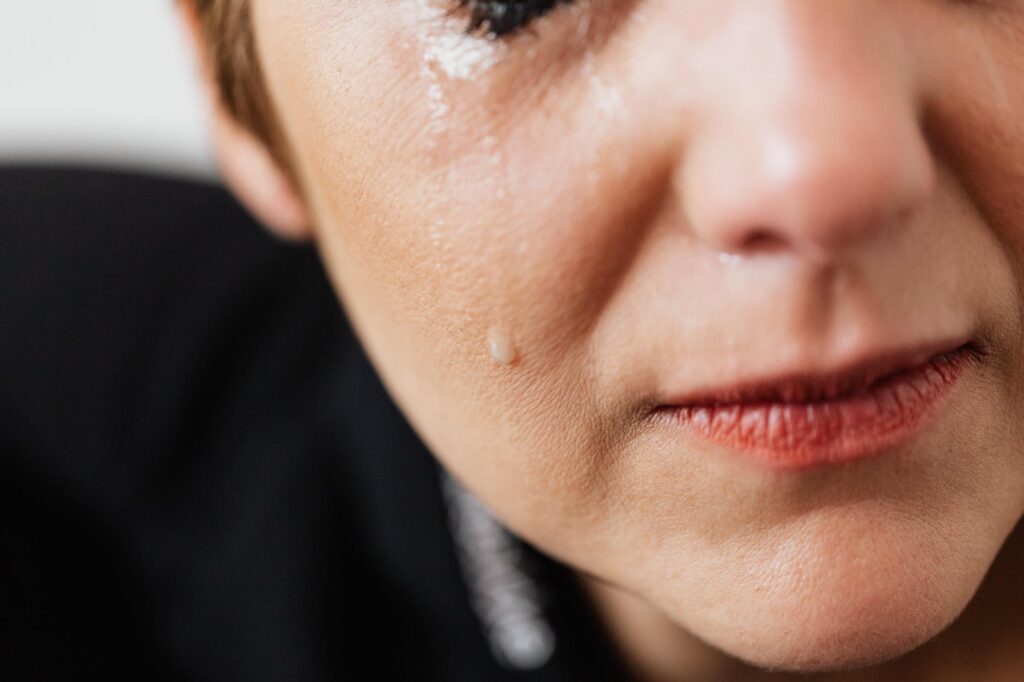11 steps on how to forgive yourself
Most times people find it easier to forgive other people than to forgive themselves, they keep themselves captives and prisoners to their inability to forgive themselves.
When someone hurts us we can decide to overlook and forgive them since we might not see them again or probably because we have no room for hate towards someone that means little or nothing to us.
However when it comes to forgiving ourselves it is not that simple, it takes the most matured and developed minds to easily forgive themselves, the rest live with hurt, anger and guilt.
Before delving into the concept of forgiving one’s self let’s try to understand the concept of mistakes;
I would define a mistake as an error that occurs when an individual tries out something new or a technique that they are not familiar with. A mistake can occur once, twice or more it all depends on the individual and their persistent skills.
Another definition of mistake: A mistake is a misinterpretation of a concept based on one’s point of view. In our society today everyone is entitled to their opinion & beliefs therefore a person might wrongly interpret a concept and act accordingly resulting in a mistake.
Finally, the English dictionary also interprets a mistake to be a misunderstanding, to wrongly understand or to commit an unintentional error.
From the definitions above we can see that a mistake is not a deliberate action even though it is done deliberately for example; two children coming from different homes with different upbringings attended the same school. Child A was taught to be polite, friendly, nice and respectful to everyone including strangers, child B on other hand was taught to be very careful and wary of strangers.
On arrival at school Child, A greeted and held conversations with his classmates and soon he had new friends but Child B did the opposite he didn’t greet his teacher and just stared at everyone like they were aliens.
Clearly, child B actions were deliberately based on his interpretation of the “strangers concept” his parents told him about.
Most times we act like child B, our values, characters and lifestyle is influenced by our parents and the environment. Until we grow older and discover that most our beliefs are wrong we keep making these mistakes deliberately because it’s our characters and we believe they are right while others are wrong.
Relationship between mistakes and forgiveness
People only apologies when they have done something wrong, this means that it takes a mistake for an apology(forgiveness) to be birth. We cannot talk about forgiveness without discussing about the relationship between making a mistake and asking for forgiveness.
When you say sorry to someone, you are simply asking them to forgive you for the wrong thing(mistake) you committed towards them. If no mistake is made that means there is no need to ask for forgiveness.
Therefore the root cause of one’s inability to forgive themselves can be traced to the magnitude of the mistake made. For example, you had a quarrel with your fiancé in the presence of your friends, out of anger you spill something about his past that he told you because he trusted that you will not to spill it.
Once you realize what you have just done you feel bad immediately, you don’t care what caused the fight all you can think about is the look on his face when you spill everything he told you in private. You keep repeating the scene continually in your head, wishing you handle the situation in a different way.
At this point, the only thing you can see right now is the intensity of the mistake you made, how your fiancé may never trust you with his secrets again or he might call off the engagement just because of that silly mistake you made.
Let’s say he actually break off the engagement how do you stop blaming yourself for the rest of your life and try to move on.
To forgive you must be willing to feel the hurt, yes you heard that right!
You made a terrible mistake by spilling your partner’s secret out to everyone just because you were angry. Anger does not justify your actions, you broke the trust you shared and for that, you are responsible for what happened.
This stage is termed accepting responsibility, you acknowledge the fact that you were wrong, you have made a terrible mistake hurting yourself and your ex-fiancé.
Acknowledging your mistake is very important as it helps you identify the error in order to make amends by engaging in self development.
11 steps on how to forgive yourself
Forgiveness eases the feeling of guilt, hurt and anger, when you constantly blame yourself for a past mistake it could lead to depression or other mental illness that are detrimental to you overall health.
If forgiving yourself for past mistakes has always been a problem for you, these steps should guide you on your journey towards achieving peace and completely forgiving yourself.
1.It’s okay to feel bad :
When you hurt some you love or care about it’s quite understandable that you feel bad for the hurt you have caused your loved one. You can only feel bad about something when you recognize that you were wrong, if you don’t feel like something you did is wrong you might not feel bad or add any emotion to the event that occurs.
Feeling bad signifies that you have a healthy conscience, there are some people in the world who do not show any remorse when they do something bad to someone. They claim to be always right and they will easily play the victim card as long as it guarantees their position as the person who was wronged and is deserving of an apology.
Now the most important question will be, for long am I supposed to feel bad?
Practically there’s no set time or duration for how long you should feel bad for your actions however feeling bad for a long period of time doesn’t resolve the situation so the right approach will be to feel bad, then accept your mistake and look for possible solutions to resolve the issue.
- Identify the emotions you feel :
There are different kinds of emotions that may course through you when you are feeling bad due to the mistake you committed however it is important that you identify the kind of emotions.
Emotions ranging from shame, guilt and a feeling of unworthiness are the major emotions that flows through a person but, are these emotions acceptable to your mental health?
When you feel guilty for what you have done this shows that you acknowledge that you have made a mistake and you feel sorry for the hurt you might have caused. This feeling is acceptable, unlike the other emotions, it pushes you to search for solutions to resolve the problem you have created.
Shame is not the right emotion to feel, at this point you do not acknowledge yourself as a human who is capable of making mistakes neither do you acknowledge the mistake you have made. You worry about your damaged self image, what people will say about you and how to save yourself from the problem you created. This is quite a selfish emotion, it all about you. What about the people you have hurt don’t they matter too?
Ensure that the emotion that courses through you ignite you to seek ways to make amends and fix your relationships with people this will make it easier for you to forgive yourself.
Don’t engage in a selfish emotion that offers no thoughts about others.
- Accept responsibility for your mistakes :
There are a lot of people who cannot bear the thought of been responsible of an event that went wrong, the mere thought of taking responsibility for their mistakes is a very scary concept to them.
We have these kind of people around us, they could a family member, a colleague at work or a friend these attitude of theirs doesn’t make them bad people, it’s just a flaw that can be worked on.
If we want to learn to forgive ourselves we must be ready to take responsibility for our actions, when we accept our wrongs we are simply admitting that we are humans with weakness but we are willing to work on our weaknesses.
Most times people view taking responsibility of your mistakes as a sign of weakness, timidity and cowardice this line of thought is not accurate. It takes courage and strength to accept that you are responsible for a mistake.
Don’t be scared to bear the weight of the mistake you made as it is a major part of the self forgiveness process.
- Learn from your mistakes:
Acknowledging your mistake is a great step to take but it is very important that you learn from them.
Ask yourself the following questions in order to understand where you went wrong;
- What was my mistake?
- What should I have done differently?
- Is this something I do regularly?
- How will I feel if I was the receiver of my actions?
Think deeply before answering any of the above questions, these questions should serve as the guide that helps you uncover the secret lessons you can learn from your past mistakes.
Saying sorry to someone doesn’t mean you won’t repeat the action again however studying your mistake carefully and trying to figure out why you shouldn’t repeat the action is a more efficient way to deal with the problem of repeating the mistake regularly.
When you learn from your mistakes you are giving yourself a chance to heal therefore making the self forgiveness process easier.
- Offer sincere apologies to people you hurt :
If you made a mistake and you are yet to apologize to the person you hurt how do you think you will be able to forgive yourself.
We have to learn to make peace with people we have hurt, when we do this we are releasing ourselves from the guilt of hurting someone. When you are guilt-free, it gets more easier to forgive yourself.
Ensure that your apology is sincere and heartfelt, there’s no need to apologize to people without showing remorse. If your apologies to people are insincere it is quite obvious that your apologies to yourself will also be insincere.
- Apologize to yourself :
When you made the mistake, you probably didn’t know that you were wrong but now that you do it is important that you apologize to yourself.
You can write a letter of apology and address it to yourself, talk about the mistakes, how it made you feel and ensure that you point out that the mistake was not intentional.
In your letter, talk about the lessons you have learned from your mistake and the steps you have taken to reconcile with the person/people you hurt.
- Patience is key :
Forgiveness is not an automatic process or chemical reaction that can be ignited with the introduction of a catalyst. It takes time for someone to forgive you and even more time for you to forgive yourself.
Follow the steps that leads to self forgiveness, don’t rush the process it will eventually happen.
- Avoid self sabotaging :
If you want to be able to forgive yourself, you must end the self-criticism that you have engaged in. Hating yourself for the mistakes you made yields no positive results instead it is a fertile ground for depression and other mental related problems.
Rather than criticizing yourself, engage in the positive affirmation that depicts the forgiveness process. Repeat the following affirmations constantly throughout the day;
- I forgive myself because I love myself.
- I spread love all around me therefore I have no space for hate, anger, hurt and resentment.
- I take corrections and learn from my mistakes.
- Stop replaying the process :
Replaying the incident doesn’t make the mistake go away, it just breeds more hurt and shame. These two emotions are disastrous when placed together as they can lead to depression or make one suicidal.
If you want to forgive yourself quit the need to constantly replay the past event that occurred.
- Visualize what forgiveness feels like :
Try to picture how you will feel when you forgive yourself, make sure your visualization is exactly what you would do if you forgive yourself.
Keep this mental picture in your mind and constantly revisit it instead of replaying the mistake made.
- Consult a professional :
If you cannot handle the process of self forgiveness all by yourself then it is advisable to seek professional help. Consult a therapist to help you with the entire process.
Conclusion
We need to love ourselves enough to know that sometimes mistakes are inevitable but we ought to know that these mistakes do not define us.
Learn to forgive yourself, give yourself a chance to heal and live a happier life.


